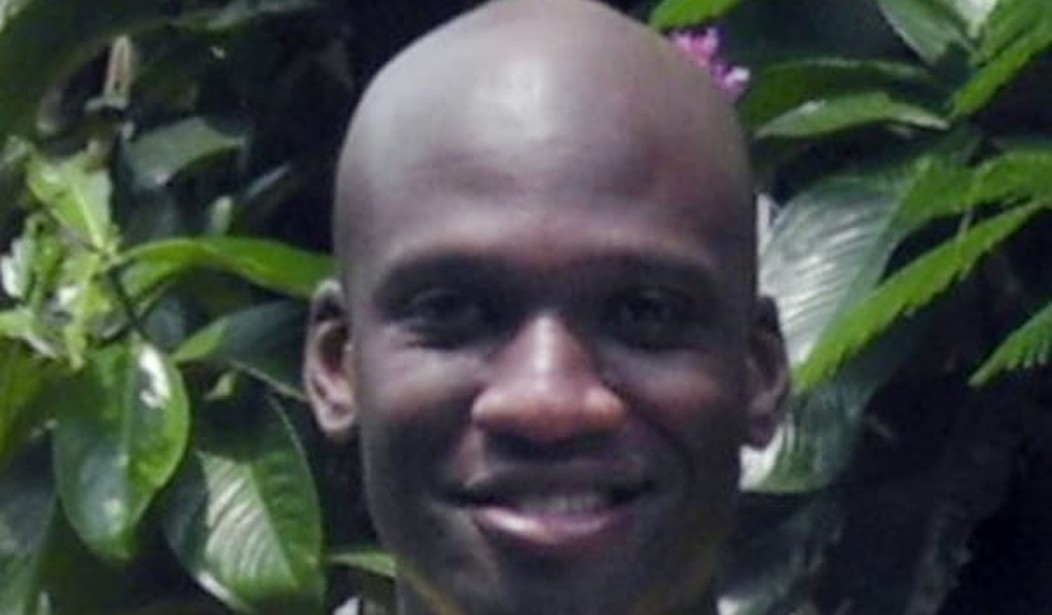WASHINGTON — As more information trickled out about the Navy Yard shooter today, gun-control advocates noted an upcoming shift in their congressional strategy.
The FBI battled back against a story that the Aaron Alexis, who killed 12 in the Monday morning rampage, used an AR-15.
“In regards to the weapons used by Mr. Alexis, there has been a lot of information circulating in the media over the past day,” Valerie Parlave, assistant director in charge at the FBI Washington field office, said at a press conference. “Once again, we caution against obtaining information from unofficial sources, and we ask that all inquiries be directed to the FBI.”
“At this time, we believe that Mr. Alexis entered building 197 at the Navy Yard with a shotgun. We do not have any information at this time that he had an AR-15 in his possession,” Parlave continued. “We also believe Mr. Alexis may have gained access to a handgun once inside the facility and after he began shooting. As previously mentioned, Mr. Alexis had legitimate access to the Navy Yard as a result of his work as a contractor, and he utilized a valid pass to gain entry to the building.”
The portrait that emerged of Alexis showed a man with anger-management issues who had experienced scrapes with the law including disorderly conduct, shooting out tires over a parking dispute and shooting through the ceiling of his apartment into another unit.
Perhaps the most alarming account to emerge, though, was the release of a Newport, R.I., police report from Aug. 7 in which the traveling contractor told officers he summoned to his hotel that voices through the wall were threatening him.
The report says Alexis thought three people were sent “to follow him and keep him awake by talking to him and sending vibrations into his body.” He also told cops that he didn’t have mental illness.
The Newport police faxed a copy of the report to naval station police the same day; the sergeant in charge said the naval cop on duty told him they would “follow up on this subject and determine if he is in fact a naval base contractor.” Six weeks later, Alexis bought a Remington shotgun and ammunition in Virginia and, two days later, entered the Navy Yard in D.C. where he went on his shooting spree.
Alexis reportedly tested an AR-15 at the gun store, but was prohibited from buying it because he was from out of state.
A champion of the Senate gun-control effort after the Newtown shooting made clear today that proponents of stricter laws would lead with the revelations of Alexis’ apparent paranoia and delusions.
Sen. Richard Blumenthal (D-Conn.) said on the Senate floor today that “the shooting at the Washington Navy Yard makes clear that, as we said in the wake of Newtown, these kinds of mass killings can happen anywhere, any school, any community – in Newtown, the quintessential New England town or at the Washington Navy Yard, a supposedly secure military facility.”
“And we need to make sure that it happens nowhere. Let us make a mental health initiative, a centerpiece of this renewal and reinvigoration of our effort to stop gun violence,” Blumenthal continued. “Let us combine it with background checks and other commonsense measures. Bring back this issue and these measures. We are not going away. We are not giving up.”
Another proponent of the original gun-control effort this Congress said he still wants to push for an assault weapons ban and limits on ammunition capacity, but also stressed the mental health angle.
“We must take steps to strengthen our mental health system so that individuals who need help with mental illness can get appropriate help and not have access to hand guns or other weapons,” said Sen. Ben Cardin (D-Md.). “Despite lobbying efforts to the contrary, I know that we can protect our communities while still protecting the Constitutional rights of legitimate hunters and existing gun owners.”
Gun-control proponents incorporated the question of sales to those with mental conditions into their efforts after the Newtown shooting — but opted to focus more on the type of weapon than the person behind the gun. Additional restrictions on those who have been seen for mental health issues wades into a stickier debate of determining which conditions would have to be reported and who makes a determination that a person isn’t mentally stable enough to purchase and possess a gun.
White House press secretary Jay Carney said “we have to wait and see what the investigators provide,” but referenced the mental health aspects of the gun-control blueprint prepared by the administration after the Newtown shooting.
Senate Majority Leader Harry Reid (D-Nev.) told reporters on the Hill today that he wants to move gun control back to the forefront “as quickly as we can,” but acknowledged “we don’t have the votes.”
“We want to stop people who have mental illness from buying a gun. We want to stop people who are felons from being able to purchase a gun. That’s what that’s all about,” Reid said.
Rep. Donna Edwards (D-Md.) used to work at the Navy Yard as a civilian contractor.
“Can’t we just make sure that we have a system where people who have severe mental health problems get into a database so that they are prohibited from purchasing a weapon? Can’t we standardize that across the country?” Edwards said on MSNBC. “This seems like low-hanging fruit if you want to be a civil society that protects its citizens, and Congress really has to act.”
There was a concurrent focus on mental illness as related to security clearances.
“Did this man’s condition, did his mental condition, deteriorate after he got his security clearance? I think the president needs to appoint a special, specialized panel that would have security and military experts,” said D.C. Del. Eleanor Holmes Norton (D), who added of the mentally ill “we don’t want them walled off. We want them to become part of the community. But we certainly want those who work there to be secure.”
“So I think this needs a rather special investigation and I’m writing the president today to ask him to appoint just such a specialized panel,” she added on CNN.
“Obviously gun control is a factor in this. There appear to be certainly some mental health problems involved. But also one of the questions we have to raise is, you know, why, given this man’s history, was he issued credentials to be able to get into the Navy Yard in the first place. It’s a military base. He had a questionable history with the Navy in the past,” D.C. Mayor Vincent Gray said on MSNBC. “So those are all questions that will be a part of the ongoing investigation, and may be the ones that are up front, beyond mental health and beyond the gun control issues.”
Rear Adm. John Kirby, chief Navy spokesman, told CNN today that Alexis got a 10-year security clearance when he enlisted in 2007.
“So the security clearance was valid when he left the Navy in 2011. And because he wasn’t out of work very long before he took this next job, the security clearance went with him,” Kirby said. “But again, we’re taking a look at all these reports of run-ins with the law, to see if anything should have been done differently right now.”
Of Alexis’ eight incidents of misconduct in the Navy, Kirby said, “Well, look, he wasn’t a stellar sailor.”
“They were, by and large, relatively minor — insubordination, dereliction of duty, failing to show up for work repeatedly on schedule, on time … he volunteered to leave the Navy early, got an honorable discharge and left the Navy.”
The spokesman stressed that none of the incidents in the Navy “give you an indication that he was capable of this sort of brutal, vicious violence.”
“We don’t have any indications right now that there were mental health issues while he was on active duty. I’ve seen the reports that he sought some mental health care when he left from the V.A.,” Kirby continued. “…We want soldiers, sailors, airmen and Marines to come forward if they think they have a mental health issue and seek the care, not so — and to not have to fear the stigma or an effect on their career or their security clearance.”









Join the conversation as a VIP Member